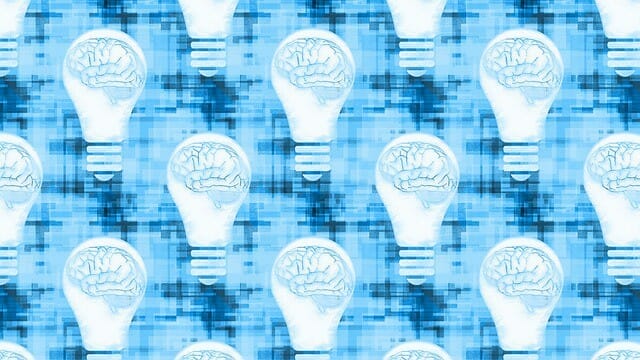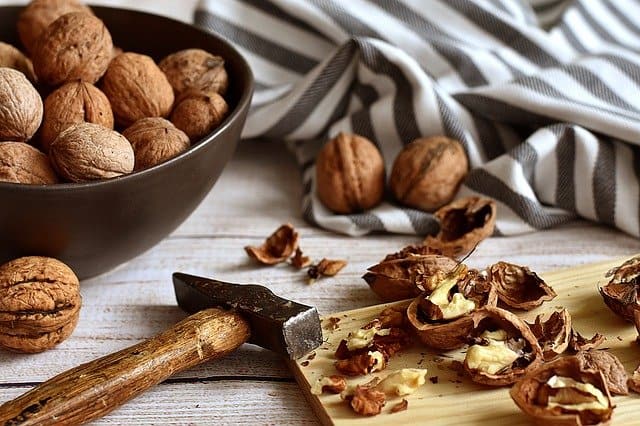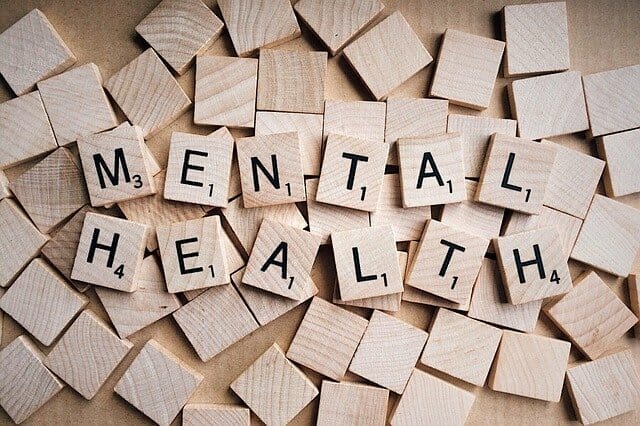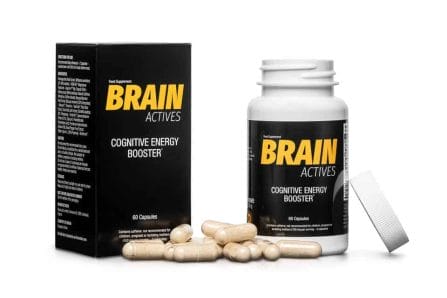The ability to remember is a basic condition for acquiring knowledge and developing abstract thinking and intelligence, so in a sense, next to higher feelings, it is the foundation of our humanity. Without this ability we become incomplete beings. That is why it is so important to take care of this valuable ability. How to improve memory? It should be taken care of in many dimensions, both by proper lifestyle and nutrition as well as by constant training of the mind.
Table of contents
- 1 What exactly is human memory?
- 2 Mechanisms of memory problems
- 3 What is good for memory and concentration? Home remedies
- 4 How to train your memory, that is, train your brain
- 5 How to improve memory – more exercise!
- 6 Sleep for improved memory
- 7 Stress reduction
- 8 How to improve memory through supplementation?
What exactly is human memory?
Memory is a mental function of cognitive nature, which enables temporary or permanent retention, storage and retrieval of information. Taking into account the duration of information storage, we distinguish between short-term and long-term memory.
Short-term memory is also known as working memory. We use it when we need to store a specific piece of information for a certain period of time, for example a telephone number needed to take care of a specific issue or the title of a book we want to read. Systematic repetition of the acquired information leads to long-term memory.
Long-term memory, on the other hand, includes descriptive, conscious memorization of facts, events, theoretical and practical knowledge, history of one’s own life. The second type of long-term memory is non-descriptive, unconscious and includes, among others, conditioned reflexes and habits and procedures. Memory disorders may concern different types of memory and give rise to different symptoms.
Mechanisms of memory problems

Everybody forgets something, but if these gaps are temporary and occur sporadically, there is nothing to worry about. However, if difficulties in remembering seemingly obvious information occur more and more often, a doctor should be consulted, especially since initially mild disorders of mental functions may transform into serious diseases.
Problems with memory or concentration can happen at any age, but the risk of their occurrence increases with age. This is because over time, the centers of the cerebral cortex responsible for memory become less efficient, the brain’s ability to assimilate new knowledge weakens, a person has more difficulty with concentration and abstract thinking.
Such mild cognitive dysfunctions may persist for many years without leading to any serious illnesses. They are also not a rule with no exceptions – surely each of us knows at least one person who retains full mental capacity despite old age.
Sometimes, however, initially mild disorders are the beginning of senile dementia or Alzheimera disease, as a result of which brain tissue gradually degenerates, so that at some point the patient can no longer function independently.
Memory problems also occur at a younger age, then they may have a pathological basis, caused by diseases such as liver failure, thyroid disease, kidney disease, nervous system infections, vitamin deficiencies, brain tumors. Memory disorders are also caused by some psychotropic drugs, and even depression or lowered mood. In most cases these disorders are reversible.
Read also a review of a dietary supplement for good memory and concentration: Extra Mind
What is good for memory and concentration? Home remedies

First of all – diet
How to improve memory through proper diet? The matter is simple – enrich the menu with ingredients that affect the efficiency of mental functions. Our brain is constantly working at high speed, so it needs a constant supply of energy, and in no small quantities. It is estimated that the brain uses up to 25% of the energy supplied to the body with food, including almost half of the glucose. Thus, in order to enjoy high mental efficiency and good memory, the brain needs to be properly nourished.
Key importance of vitamins and minerals
Our diet should first of all provide the body with an adequate amount of vitamins and minerals. Of primary importance here are the B vitamins. Vitamin B1 plays an important role in transmitting nerve impulses, and its deficiency causes damage to nerve cells.
B6 deficiency results in memory deterioration and unnatural ageing of nerve cells. Folic acid, or vitamin B9, which participates in many important biochemical processes, protects not only against serious health disorders, but also against the degeneration of nervous tissue.
Other vitamins of this group, such as B3 and vitamins A, C, and E, are also important for memory processes.
Minerals such as magnesium, potassium, calcium, zinc, phosphorus, iron, support the work of the brain by improving the conduction of nerve impulses. They also have, what is worth remembering, antioxidant properties. And so: magnesium, which can be found in dairy products, whole grains, seeds and nuts, among others, supports concentration, in addition, relieves tension and stress that certainly do not serve mental performance.
Potassium improves oxygenation of the brain, phosphorus improves intelligence and memory, zinc protects the nervous system against free radicals. Calcium supports the conduction of nerve and muscle impulses, iron, as an oxygen carrier, ensures adequate oxygenation of the brain.
Omega 3 acids, protein, carbohydrates
It is impossible to overestimate the importance of omega 3 unsaturated acids for the body. They prevent many diseases, including diseases of the nervous system, support brain function, improve memory and concentration, reduce the risk of dementia.
In turn, protein is an important building element, including the brain, responsible for the proper regeneration of nerve cells, so it should not be missing from our menu, as well as carbohydrates. They are a valuable source of energy for the brain, but for health reasons and for the sake of our figure we should avoid simple sugars, and reach for complex sugars found in whole grain cereals, legumes, root and leafy vegetables, among others.
Our diet should also include products that are a source of lecithin – a substance that is particularly important, especially for people suffering from impaired thinking functions, especially memory and concentration. In order to prevent lecithin deficiency, we should eat soy products every day, eggs and fish twice a week, green vegetables, nuts and almonds from time to time.
How to train your memory, that is, train your brain

In order for the brain to be efficient and constantly active, it is necessary to exercise it, especially in the case of older people, or temporary deterioration of mental functions. Training the brain will definitely have a positive impact on its performance. If we constantly mobilize it to work, while taking care of the proper supply of the necessary energy, the memory will not fail us even in later age. And we have a whole range of possibilities at our disposal – exercises, mental games, psychological therapies.
Most of the exercises are very simple, we can easily do them at home, what is more, we can invent new techniques of training our mind. What’s more, we can invent new techniques of training our mind, because what is different than exercising memory, associative skills and concentration is solving crosswords and charades, mathematical tasks, reading difficult texts or other activities of this type.
We can play scrabble, chess or some card games such as bridge. There are also simple manual exercises that improve the work of the brain, such as performing a simple task with the left hand (in the case of left-handed people, with the right hand) or eye training – staggering with the eyes, moving from right to left and vice versa.
How to improve memory – more exercise!
Physical activity is closely related to the condition of the brain. Numerous studies have shown that systematic movement, improving oxygenation of the brain, increases its ability to store and process information. What’s more, they have shown that consistent physical activity lowers the risk of Alzheimera and Parkinson’s disease, and those who exercised regularly even showed improvements in memory.
The type of sport does not matter here, what matters is regularity and regularity, and light aerobic exercise can be done by people of all ages.
Sleep for improved memory
Sleep is essential for both physical fitness and mental health and well-being. And although we ourselves know very well that sleep deprived we are unable to think and act well, we often neglect this important physiological need.
Meanwhile, sleep deprivation or a bad quality of sleep causes not only disorders of mental functions on a given day, but also, in the long run, can negatively affect long-term memory. So let’s make sure to get a decent amount of sleep, the more so that in this way we also strengthen the immune system.
Stress reduction
Stress has equally negative influence on memory, concentration and association. It can even cause changes in some areas of the brain, leading to short-term and long-term memory disorders. And since stress is unavoidable nowadays, you need to learn how to manage it.
The easiest way to reduce stress is to use relaxation techniques, such as deep breathing exercises. Do not give in to stress, and you will certainly soon notice an improvement in your memory and your mental capacity in general.
How to improve memory through supplementation?

To support the functioning of the brain, you can take supplements based on natural ingredients. On the market there are various tablets and preparations for memory, contributing to the improvement of this and other cognitive functions.
It is worth emphasizing the role of supplements containing the so-called nootropics, i.e. substances that support the natural balance of processes occurring in the brain, in particular the activity of neurotransmitters. They also have anti-inflammatory and antioxidant properties, and protect the brain against hypoxia, premature aging, and toxins.
Some of the best known plant-derived nootropics include:
- Vitania sluggard, or ashwagandha, called Indian ginseng for good reason, known for centuries, with a wide range of uses;
- Centella Asiatica, or gotu cola, similarly to vitania, which influences cognitive functions;
- Bacopa monnieri (small-leaved bacopa), not only has a beneficial effect on the brain, but is also useful in fighting many diseases;
- Ginkgo biloba – Ginkgo biloba, among its numerous health-promoting properties, it has a positive effect on the functioning of the brain and the cardiovascular system.
Other valuable plants with neuroprotective effects are:
- Ginseng,
- Chinese citronella,
- Rhodiola rosea,
- cocoa.
Discover the best multi-ingredient dietary supplement on the market which improves memory and enhances the functioning of the mind: Brain Actives

Sources:

